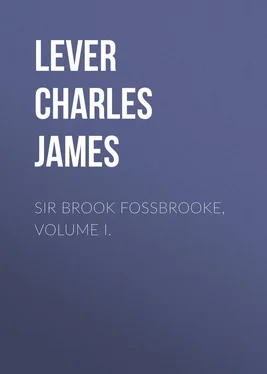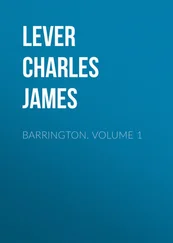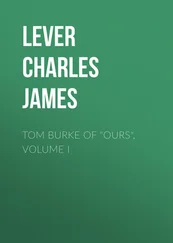Charles Lever - Sir Brook Fossbrooke, Volume I.
Здесь есть возможность читать онлайн «Charles Lever - Sir Brook Fossbrooke, Volume I.» — ознакомительный отрывок электронной книги совершенно бесплатно, а после прочтения отрывка купить полную версию. В некоторых случаях можно слушать аудио, скачать через торрент в формате fb2 и присутствует краткое содержание. Жанр: literature_19, foreign_antique, foreign_prose, на английском языке. Описание произведения, (предисловие) а так же отзывы посетителей доступны на портале библиотеки ЛибКат.
- Название:Sir Brook Fossbrooke, Volume I.
- Автор:
- Жанр:
- Год:неизвестен
- ISBN:нет данных
- Рейтинг книги:3 / 5. Голосов: 1
-
Избранное:Добавить в избранное
- Отзывы:
-
Ваша оценка:
- 60
- 1
- 2
- 3
- 4
- 5
Sir Brook Fossbrooke, Volume I.: краткое содержание, описание и аннотация
Предлагаем к чтению аннотацию, описание, краткое содержание или предисловие (зависит от того, что написал сам автор книги «Sir Brook Fossbrooke, Volume I.»). Если вы не нашли необходимую информацию о книге — напишите в комментариях, мы постараемся отыскать её.
Sir Brook Fossbrooke, Volume I. — читать онлайн ознакомительный отрывок
Ниже представлен текст книги, разбитый по страницам. Система сохранения места последней прочитанной страницы, позволяет с удобством читать онлайн бесплатно книгу «Sir Brook Fossbrooke, Volume I.», без необходимости каждый раз заново искать на чём Вы остановились. Поставьте закладку, и сможете в любой момент перейти на страницу, на которой закончили чтение.
Интервал:
Закладка:
“If you should be able to do anything before the mail goes out to-night, perhaps you will inform me,” said Pem-berton, as he bowed and left the room. “And these are the men they send over here to administer the country!” muttered he, as he descended the stairs, – “such are the intelligences that are to rule Ireland! Was it Voltaire who said there was nothing so inscrutable in all the ways of Providence as the miserable smallness of those creatures to whom the destiny of nations was committed?”
Ruminating over this, he hastened on to a nisi prius case.
CHAPTER VIII. A PUZZLING COMMISSION
As Colonel Cave re-entered his quarters after morning parade in the Royal Barracks of Dublin, he found the following letter, which the post had just delivered. It was headed “Strictly Private,” with three dashes under the words.
“Holt-Trafford.
“My dear Colonel Cave, – Sir Hugh is confined to bed with a severe attack of gout, – the doctors call it flying gout. He suffers greatly, and his nerves are in a state of irritation that makes all attempt at writing impossible. This will be my apology for obtruding upon you, though, perhaps, the cause in which I write might serve for excuse. We are in the deepest anxiety about Lionel. You are already aware how heavily his extravagance has cost us. His play-debts amounted to above ten thousand pounds, and all the cleverness of Mr. Joel has not been able to compromise with the tradespeople for less than as much more; nor are we yet done with demands from various quarters. It is not, however, of these that I desire to speak. Your kind offer to take him into your own regiment, and exercise the watchful supervision of a parent, has relieved us of much anxiety, and his own sincere affection for you is the strongest assurance we can have that the step has been a wise one. Our present uneasiness has however a deeper source than mere pecuniary embarrassment. The boy – he is very little more than a boy in years – has fallen in love, and gravely writes to his father for consent that he may marry. I assure you the shock brought back all Sir Hugh’s most severe symptoms; and his left eye was attacked with an inflammation such as Dr. Gole says he never saw equalled. So far as the incoherency of his letter will permit us to guess, the girl is a person in a very humble condition of life, the daughter of a country doctor, of course without family or fortune. That he made her acquaintance by an accident, as he informs us, is also a reason to suppose that they are not people in society. The name, as well as I can decipher it, is Lendrich or Hendrich, – neither very distinguished!
“Now, my dear Colonel, even to a second son, such an alliance would be perfectly intolerable, – totally at variance with all his father’s plans for him, and inconsistent with the station he should occupy. But there are other considerations, – too sad ones, too melancholy indeed to be spoken of, except where the best interests of a family are to be regarded, which press upon us here. The last accounts of George from Madeira leave us scarcely a hope. The climate, from which so much was expected, has done nothing. The season has been unhappily most severe, and the doctors agree in declaring that the malady has not yielded in any respect. You will see, therefore, what a change any day may accomplish in Lionel’s prospects, and how doubly important it is that he should contract no ties inconsistent with a station of no mean importance. Not that these considerations would weigh with Lionel in the least: he was always headstrong, rash, and self-willed; and if he were, or fancied that he were, bound in honor to do a thing, I know well that all persuasions would be unavailing to prevent him. I cannot believe, however, that matters can have gone so far here. This acquaintanceship must be of the very shortest; and however designing and crafty such people may be, there will surely be some means of showing them that their designs are impracticable, and of a nature only to bring disappointment and disgrace upon themselves. That Sir Hugh would give his consent is totally out of the question, – a thing not to be thought of for a moment; indeed I may tell you in confidence that his first thought on reading L.‘s letter was to carry out a project to which George had already consented, and by which the entail should be cut off, and our third son, Harry, in that case would inherit. This will show you to what extent his indignation would carry him.
“Now what is to be done? for, really, it is but time lost in deploring when prompt action alone can save us. Do you know, or do you know any one who does know, these Hendrichs or Lendrichs – who are they, what are they? Are they people to whom I could write myself, or are they in that rank in life which would enable us to make some sort of compromise? Again, could you in anyway obtain L.‘s confidence, and make him open his heart to you first? This is the more essential, because the moment he hears of anything like coercion or pressure, his whole spirit will rise in resistance, and he will be totally unmanageable. You have perhaps more influence over him than any one else, and even your influence he would resent if he suspected any dominance.
“I am madly impatient to hear what you will suggest. Will it be to see these people, to reason with them, to explain to them the fruitlessness of what they are doing? Will it be to talk to the girl herself?
“My first thought was to send for Lionel, as his father was so ill, but on consideration I felt that a meeting between them might be the thing of all others to be avoided. Indeed, in Sir Hugh’s present temper, I dare not think of the consequences.
“Might it be advisable to get Lionel attached to some foreign station? If so, I am sure I could manage it – only, would he go? there ‘s the question, – would he go? I am writing in such distress of mind, and so hurriedly too, that I really do not know what I have set down and what I have omitted. I trust, however, there is enough of this sad case before you to enable you to counsel me, or, what is much better, act for me. I wish I could send you L.‘s letter, but Sir Hugh has put it away, and I cannot lay my hand on it. Its purport, however, was to obtain authority from us to approach this girl’s relations as a suitor, and to show that his intentions were known to and concurred in by his family. The only gleam of hope in the epistle was his saying, ‘I have not the slightest reason to believe she would accept me, but the approval of my friends will certainly give me the best chance.’
“Now, my dear Colonel, compassionate my anxiety, and write to me at once – something – anything. Write such a letter as Sir Hugh may see; and if you have anything secret or confidential, enclose it as a separate slip. Was it not unfortunate that we refused that Indian appointment for him? All this misery might have been averted. You may imagine how Sir Hugh feels this conduct the more bitterly, coming, as I may say, on the back of all his late indiscretions.
“Remember, finally, happen what may, this project must not go on. It is a question of the boy’s whole future and life. To defy his father is to disinherit himself; and it is not impossible that this might be the most effectual argument you could employ with these people who now seek to entangle him.
“I have certainly no reason to love Ireland. It was there that my cousin Cornwallis married that dreadful creature who is now suing him for cruelty, and exposing the family throughout England.
“Sir Hugh gave directions last week about lodging the purchase-money for his company, but he wrote a few lines to Cox’s last night – to what purport I cannot say – not impossibly to countermand it. What affliction all this is!”
Читать дальшеИнтервал:
Закладка:
Похожие книги на «Sir Brook Fossbrooke, Volume I.»
Представляем Вашему вниманию похожие книги на «Sir Brook Fossbrooke, Volume I.» списком для выбора. Мы отобрали схожую по названию и смыслу литературу в надежде предоставить читателям больше вариантов отыскать новые, интересные, ещё непрочитанные произведения.
Обсуждение, отзывы о книге «Sir Brook Fossbrooke, Volume I.» и просто собственные мнения читателей. Оставьте ваши комментарии, напишите, что Вы думаете о произведении, его смысле или главных героях. Укажите что конкретно понравилось, а что нет, и почему Вы так считаете.












